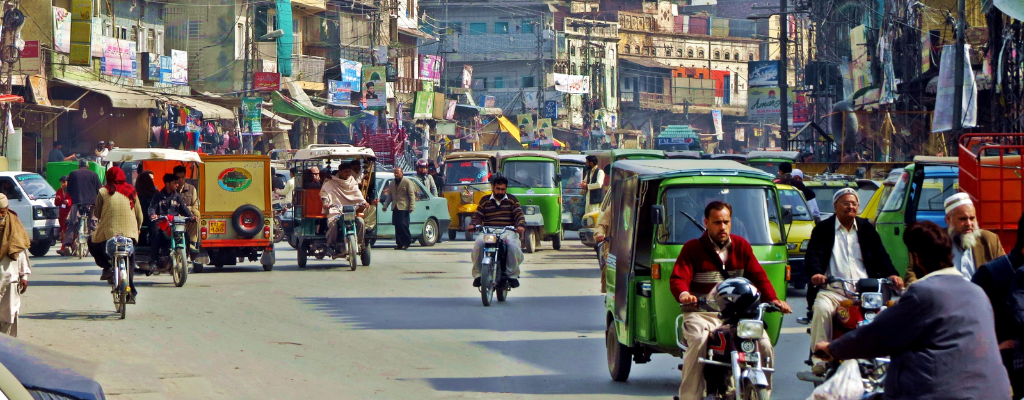BJMP trains its officials on PCVEI
The Bureau of Jail Management and Penology (BJMP) launched a 4-day virtual training on preventing and countering violent extremism and insurgency (PCVEI) from 6 to 9 October 2021. Said training aims to train the BJMP officials to prevent jails from being turned into venues where extremist ideologies could flourish.
The Manila Bulletin reported that BJMP chief, Director Allan Iral said the PCVEI training was a product of coordination with appropriate government agencies and that this effort will be continuing to further strengthen the PCVEI interventions in jails particularly in deradicalizing persons deprived of liberty (PDLs).
Secretary Hermogenes Esperon Jr, National Security Adviser and Director General of the National Security Council and the Vice-Chairperson of the National Task Force to End Local Communist Armed Conflict (NTF-ELCAC) recognized the bureau’s efforts in establishing its own PCVE center which enhances the agency’s PCVE efforts and capabilities in addressing violent extremism and radicalization.
“Jails and prisons are expected to play an increasingly major role in this fight”, NSA Esperon said.
“While in jails, there is an opportunity to put an end to the radicalization process and even reverse it to mold law-abiding citizens who do not see violence as an option in pursuing their cause,” he added.
Director Iral said PDLs are considered as one of the society’s most vulnerable sectors “making them the easiest target for manipulation.’’ While the BJMP has programs specifically designed for the deradicalization of the PDLs, the BJMP noted that violent extremism and insurgency are matters calling for constant refresher.
On the other hand, Nina Lewis, Cultural Affairs Officer of the United Staes Embassy in the Philippines affirmed that the US is proud to contribute to continuing efforts to counter terrorism and violent extremism in the country.
In her message to the participants, she reiterated how the United States is putting efforts to ensure stronger partnership with the Philippines especially on peace building efforts. “We are all in this together. This issue is so much larger than any single group or country. We saw this 20 years ago in the 9/11 attacks and if we learned anything from that it’s that we must help each other”, said Lewis.
Director Iral said that the 4-day seminar on PCVEI is one of the BJMP’s initiatives to deepen the understanding of BJMP personnel on the importance of partnership with government agencies, civic organizations, academe and other stakeholders in preventing and countering violent extremism and insurgency.
The BJMP Center on PCVEI was established in February 2021 to harmonize the BJMP’s plans, programs and activities in addressing radicalization in district, city and municipal jails that are aligned with the National Action Plan on Preventing and Countering Violent Extremism (NAP PCVE) and the Anti Terrorism Act of 2020.
Source: Manila Bulletin
Egyptian and Kenyan Muslims Scholars Team for Countrywide Campaign Against Violent Extremism
The Standard reported that Muslim scholars from Egypt and Kenya has teamed up to conduct a countrywide campaign against violent extremism among youth. Said drive aims to discourage the youth from engaging in terrorism. The youth, particularly the jobless, the scholars said, have been targeted for violent extremism.
The scholars, who are facilitated by the Egyptian Embassy, have held sessions in Lamu, Malindi and Mombasa in the campaign that has taken more than a month. The Egyptian Embassy, in partnership with Masjid Shibu in Mombasa, held a religious teaching session to urge youth to denounce violent extremism, saying it was against Islam. The embassy has been facilitating the teachings dubbed 'Renouncing Violence and Extremism in Islam' in mosques countrywide.
Sheikh Attia Abdrabou from Al-Azhar Al-Sharif University, who was the main speaker, said Islam did not allow extremism. Sheikh Abdrabou urged Muslims to use Islam to provide impetus for the human pursuit of knowledge in science. "Islam is a peaceful religion that preaches love and forgiveness. The youths should shun extremism and embrace love and respect to the human race," Abdrabou said at the Masjid Shibu.
He said it was only through science that Covid-19 would be defeated, and urged the Muslims to follow set protocols to stem the spread of the disease.
Shibu mosque administrator and Madrasa teacher Mohamed Shebah urged the youth not to allow themselves to be misled by those who want to make money from chaos. He said Islam should help counter terrorism to ensure peace and growth in society. “Islam is not a religion of extremism and it does not encourage bloodshed. So I encourage youth to come out openly and disregard any extremism teachings,” said Shebah.He urged youth to prepare to take over from the older generation and preach peace to ensure continuity of the human race.
“When we live in peace, the business will thrive, children will go to school without fear and everyone will be at ease. But if acts of terrorism are entertained, then we are bound to fail in several aspects of life,” said Shebah.
He said Islam seeks to ensure everyone is bound to live and operate in a peaceful environment without fear.
Formulation of Counter Violent Extremism Policy 2021 in Islamabad
The International News reported that On October 5, the first consultation sessions with departmental stakeholders at the federal level for the formulation of Counter Violent Extremism Policy 2021 was held at National Counter Terrorism Authority (NACTA) Headquarters under the Chairmanship of Asif Saifullah Paracha (PSP),
Said meeting was attended by representatives of all relevant federal stakeholders in Islamabad.
Chairman PSP welcomed the participants and apprised them about the formulation of the Counter Violent Extremism (CVE) Policy 2021 that has been assigned to NACTA in the revised National Action Plan 2021. He mentioned that he anticipates all participants will actively participate and provide feedback and prompt response in the creation of an all-inclusive national policy.
Director General of Monitoring, Evaluation and Capacity Building, NACTA Dr. Akbar Nasir Khan briefed the participants on the background and formulation process of the policy. He stated that NACTA has devised various policy interventions in the past and the CVE policy 2021 will be a sequel to National Action Plan and National Counter Extremism Policy Guidelines made by NACTA in 2018.
The participants highlighted the importance of CVE in the present security environment and urged for the formulation of concrete steps and consolidated response in countering the menace of extremism especially on social media platforms.
The participants described the CVE policy formulation as a positive step in Pakistan’s path towards peace and ensured complete cooperation in the formulation of a holistic policy.
Source: The International News Pakistan
148 Police Trained on CVE in Bangladesh
The Business Standard Bangladesh reported that a total of 148 community police were given trainings on Countering Violent Extremism in six phases from early September in Chattogram.
Said training was organized by the group Songshoptaque PEACE Project and was funded by The Asia Foundation.
The Bangladesh police aim to promote partnership with the community to help them address the main causes of crime, fear, and other issues which threaten the security of said country.
The Community Policing Forum (CPF) members were trained at Chittagong City Corporation and five upazilas of the district including Chandanaish, Anowara, Boalkhali, Karnaphuli and Banshkhali.
The trainings were presided by Liton Chowdhury, Chief Executive of Songshoptaque while key officials namely Deputy Commissioner of Chattogram Metropolitan Police (South) Bijoy Basak, Boalkhali UNO Nazmun Nahar and Banshkhali UNO Syduzzaman Chowdhury joined said training.
Since December 2019, the Songshoptaque – Policing Engagement Approach in Countering Extremism- PEACE Bangladesh Project is being implemented in Chittagong City Corporation and Bashkhali, Anwara, Satkania, Chandnaish, Boalkhali, Karnafuli Upazila and concerned police stations under Chittagong City Corporation and Chittagong District with the financial and technical support of The Asia Foundation by Songshoptaque.
Source: The Business Standard Bangladesh
Think Tank: Flawed CVE Projects May Create New Terrorists
The National UK reported that London-based think-tank Royal United Services Institute (Rusi) said countering violent extremism (CVE) programs aimed at stopping the vulnerable descending into violent extremism may cause more problems than they solve by inadvertently building networks of radicals.
Said think-tank believes that CVE projects are often poorly tested, assessed and monitored, making it hard to understand what works.
The UK launched its own review into its version of the program titled “Prevent” this year after criticism of its perceived failures and accusations that it was aimed unjustly at British Muslims over other groups.
Rusi’s worldwide examination of papers and studies on the topic found a lack of hard evidence as to what works and how well projects in one country could translate to others.
It found that in Lebanon, some charities rebranded their work as CVE to draw cash from donors. Rusi also found that some programs that were merged with women’s rights projects led to a backlash against women who were regarded as “intelligence gatherers”.
“In extreme circumstances, such projects can even contribute to radicalisation processes,” the paper said. Some projects exacerbated problems by helping “contacts between radicalised individuals and enhancing distrust of the state”, it said.
The Brennan Centre, a US law and policy institute, has described the evidence underpinning so-called CVE projects as “junk science” that has proven to be “ineffective, discriminatory and divisive”.
Source: The National UK
Nigeria seeks UN support on Countering Violent Extremism
Vanguard Media Nigeria reported the Nigerian National Security Adviser retired Major General Babagana Monguno has seeked the support of the United Nations Office of Counter-Terrorism (UNOCT) to discuss and find ways to end terrorism and violent extremism in Nigeria and the West African sub-region.
In one of the interviews of News Agency of Nigeria (NAN) in New York, Monguno mentioned Nigeria and the sub-region needed the international community to support and sustain the country’s efforts in the fight against terrorism and insurgency.
Additionally, Monguno also expressed Nigeria’s readiness to collaborate with UNOCT in rendering humanitarian support for victims of terrorism in Nigeria’s North-East.
The NSA said Nigeria has had a long working relationship with the UNOCT and would want to continue the partnership especially on combatting terrorism in the country and the sub-region.
NAN also reported that the Nigerian security officer held a closed-door meeting with the Under-Secretary-General of UNOCT, Mr Vladimir Voronkov, on the margins of the ongoing UN General Assembly.
“The focus of my discussion with the Under-Secretary-General of UNOCT was mainly to look at current and emerging issues on counter-terrorism and extreme violence,” he said.
“I discussed the need for us to look at new challenges in a more comprehensive manner, especially looking at the non-kinetic aspects of fighting terrorism and violent extremism.
“These are no longer solely Nigeria's issues but a completely regional problem.”
“I also told him that Niger, Cameroon, Chad had their own inherent peculiar problems, which is capable of slowing their progress with us in the Multinational Joint Task Force,’’ he said.
Monguno stressed the need to look at ways to involve all the countries across the globe in dealing with terrorism, particularly in a non-kinetic manner.
He said the issues of small arms, light weapons and other problems have been affecting the country’s fight against counter-terrorism and violent extremism.
According to him, the UN counter-terrorism chief has given assurances of partnering with Nigeria and also with other countries of the world that are focusing on the fight against terrorism to join hands together with Nigeria.
“We have been collaborating on softer issues of building trust within the local communities, issues of regulating non-governmental organisations in working with the people.
“Also, UNOCT is trying to work with some institutions in Nigeria like the Ministry of Humanitarian Affairs on ways to build the institutions of government together to deal with those areas that we cannot deal with using military force.’’
Other issues discussed with the UN counter-terrorism chief are strengthening border security management, combating terrorism financing as well as improving the coordination of Civil Society Organisations’ engagements in preventing and countering violent extremism in Nigeria.
Monguno had earlier met with the Assistant Secretary-General (ASG)/Executive Director, United Nations Counter-Terrorism Committee Executive Directorate (CTED), Michèle Coninsx, and the duo discussed how to address the current terrorist threats in Nigeria, Lake Chad Basin and the Sahel.
The meeting between the NSA and Coninsx discussed Nigeria’s progress in combating terrorism and violent extremism, supporting victims of terrorism, de-radicalisation and prosecution of suspected terrorists as well as global support to the country.
SOURCE: Vanguard Media Nigeria
Establishment of Centre of Research Excellence on social cohesion and countering violent extremism in New Zealand
The government of New Zealand will be establishing the Centre of Research Excellence on social cohesion and countering violent extremism as a response to the growing threat of violent extremism.
Newsroom New Zealand reported that the New Zealand government will be providing updates on said centre this October as part of the progress being made in response to the Royal Commission of Inquiry into the March 15 Christchurch terror attack.
The Royal Commission found New Zealand needed "to develop its own evidence-based solutions to prevent and counter extremism, violent extremism and terrorism, built on lessons from global experience". The commission said a specific government research institute might take too long to set up and be too expensive, but the Government has decided to go ahead with the proposal anyway.
The establishment of the centre was planned during the New Zealnd Government's counter-terrorism gathering in May 2021. A concept document released to The Newsroom under the Official Information Act shows that, ahead of the hui, the Government was envisaging a fully virtual research institute.
"While there are a variety of options for the centre's operating model, during initial discussions we have received strong encouragement from a wide range of academics not to invest in 'bricks and mortar' but to establish a virtual centre," the briefing, delivered to Prime Minister Jacinda Ardern in her capacity as the Minister for National Security and Intelligence, said.
"This would mean most of the available funding would be directed towards directly supporting research and delivering on the centre's various outcomes."
The intended outcomes included New Zealand developing and maintaining "a strong breadth and depth of expertise in preventing and countering violent extremism, based on Te Tiriti as a foundation and Te Ao Māori approaches where appropriate". The policy approach to countering extremism was "informed by a strong body of evidence-based research, with international best practice translated into a New Zealand context".
The briefing also expected that the research centre would lead to a "better-informed public" and foster "strong partnerships between researchers, civil society, and government [to] enable a collective, collaborative approach to preventing and countering violent extremism". As the centre's work became more high-profile, it would allow New Zealand to contribute knowledge beyond its borders.
The centre will also be tasked with leading the annual counter-terrorism hui alongside the Government and will chair a new Advisory Group on Counter-Terrorism to provide advice to the Government.
A spokesperson for the National Security Group in the Department of the Prime Minister and Cabinet said that the centre will no longer be entirely virtual.
"At this stage it is envisaged that the centre will be a 'hybrid' centre that is run by a director and programme manager out of a New Zealand-based university or research institute, in collaboration with other universities and organisations," they said.
"The Centre of Excellence will bring together research organisations and institutes, civil society, organisations, and government to research preventing and countering violent extremism, with a focus on understanding diversity and promoting social cohesion. This will help inform public discussion on preventing and countering violent extremism, and guide the work of policy agencies across government."
Alongside hiring a director, the next steps include setting the terms of reference for the centre's governance board, establishing that board by the end of the year and launching a master's scholarship programme.
The centre is expected to cost $500,000 to set up and $500,000 a year to operate.
To note, in March 15, 2019, two (2) consecutive mass shootings at mosques in New Zealand transpired which killed 51 people and injured 40 others. Said incident was perpetrated by Australian national Brenton Harrison Tarrant, a white supremacist and terrorist.
Reference: https://www.newsroom.co.nz/govts-violent-extremism-research-centre-to-be-part-virtual
UAE FNC Calls for Cooperation in Vienna Session on Countering terrorism
On September 9, 2021, a session titled "Role of parliaments in the prevention of terrorism, radicalisation and hate speech: Challenges, parliamentary perspectives, effective strategies and best practices" was conducted in Vienna, Austria as part of the First Global Parliament Summit on Countering Terrorism.
The Emirates News Agency reported that Saqr Ghobash, Speaker of the Federal National Council (FNC) of the United Arab Emirates (UAE) said terrorism and violent extremism are global challenges, stressing the international community must effectively combat them, but not only through military and security measures.
"Terrorist and extremist organisations aim to take advantage of marginalised and unstable areas to recruit young people, which requires finding urgent solutions to the root causes and conditions that drive people to join these organisations," Ghobash added.
He also mentioned the importance of supporting the work of parliamentarians, in collaboration with official authorities in these regions, while emphasising the role of women, the youth, local authorities and civil society, including religious leaders and community leaders, in standing together against violence, as well as of improving the related work of government authorities, especially parliaments, through encouraging community participation.
Promoting the values of tolerance, moderation, openness and coexistence are key tools for combatting terrorism and extremism, he further added, noting that such values were long instilled in the Emirati community by the late Sheikh Zayed bin Sultan Al Nahyan, and his legacy is being continued by the country’s leadership. "The Principles of the 50'' launched recently by the UAE highlights its cultural values based on peace, dialogue, tolerance and coexistence, he further said.
Ghobash then explained the UAE’s approach to establishing international partnerships aimed at combatting terrorism, affirming it has implemented a series of procedures aimed at countering terrorism and eliminating its sources and root causes, most notably the establishment of the Hedayah Centre, which is a global partnership project that aims to prevent extremism, and the Sawab Centre, which aims to challenge extremism on social media.
The Global Parliamentary Summit on Countering Terrorism is the first such Summit to be held in partnership between the IPU and the United Nations.
The Summit will be taking place at a critical time, as the international community and global and national economies seek to recover from the devastating COVID-19 pandemic.
This Summit will allow parliamentarians to identify lasting solutions and make a parliamentary contribution to global efforts in counter-terrorism and the prevention of violent extremism, with robust action and a real impact on communities, in particular the victims of terrorism.
Source: Emirates News Agency
PH and KSA Collaborate to Counter Violent Extremism
On June 23, 2021, Presidential Assistant on Foreign Affairs and Special Envoy to Saudi Arabia Robert E. A. Borje and Mansour Al Shammari, the secretary general of the Global Center for Combating Extremist Ideology (Etidal), recognized the necessity of sharing best practices in countering the threat posed by violent extremism.
In an article published by The Philippine News Agency, among the concerns discussed between the Philippine and the Kingdom of Saudi Arabia include the use of cyberspace and social media platforms to advance violence and violent ideologies.
Presidential Assistant Borje visited Etidal in Riyadh as part of the Duterte administration’s thrust of working with other countries and organizations to fight terrorism and violent extremism.
He received a briefing on Etidal’s approach to analyzing social media and digital activity to detect extremism ideology generation and to promote tolerance and moderation.
During the meeting with Etidal’s secretary general, Borje noted President Rodrigo Duterte’s deep resolve to combat extremist ideology given the Philippines’ experience in Marawi City in 2017.
He said the Philippines understands very clearly that terrorism is not a problem of religion, race or culture, emphasizing the need to continue to promote dialogue, understanding and cooperation among religions, cultures and civilizations to achieve peace and stability between the two countries and the world.
Borje also noted the possibility of triangular cooperation between the Philippines, Saudi Arabia and multilateral organizations such as the United Nations (UN) as well as the academe and research organizations.
Source: pna.gov.ph
Director Cosanie - An Ambassador of Peace
As the country continues to face challenges brought about by violent extremism, there are people working behind the spotlight in order to ensure that the Philippines could one day enjoy lasting peace.
Director Cosanie Derogongan is one of the officials under the National Commission for Muslim Filipinos. Currently, he leads the Bureau of Peace and Conflict Resolution. Since he started his term, Director Cosanie implemented several programs, activities, workshops and seminars on preventing and countering violent extremism (PCVE). He travels to different parts of the country, from the north in Baguio City, to Subic, Zambales, down to the south in Davao and other parts of Mindanao together with his team to conduct seminars and awareness programs on PCVE and peace.
Director Cosanie gives utmost priority to the youth, who are one of the most vulnerable sectors of violent extremism. He ensures that his programs are those that motivate and inspire the Muslim youth to aspire to be leaders and peacebuilders in the country.
Director Cosanie also acknowledges all the hardwork of the Balik-Islam in maintaining peace in the country. Recently, his office congratulated the efforts of Eisa Javier of the Mercy Islamic Foundation and the United Muslim Reverts Alliance (UMRA), a group dedicated to represent the Balik-Islam community.
We at Mustaqim salute Director Cosanie, one of the country’s ambassadors of peace. We look forward to more programs and activities on peace and PCVE.










